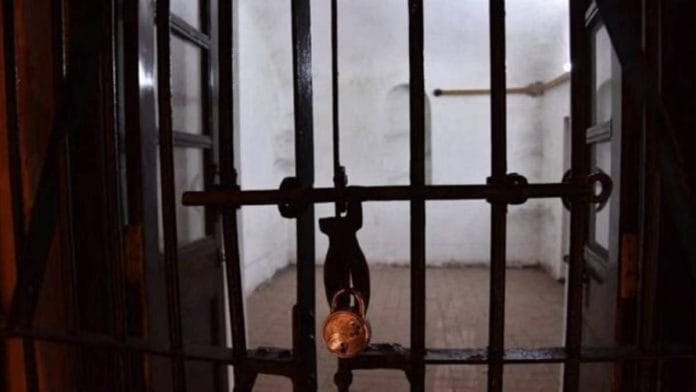Gurugram: In a shift towards reformative justice as opposed to retributive justice for minor offences, Haryana has issued Community Service Guidelines, 2025, for the imposition of social service as an alternative to custodial sentencing for certain first-time offenders.
The special gazette notification on the same was issued on 16 August by the Administration of Justice Department under Additional Chief Secretary Dr Sumita Misra.
The guidelines seek to implement Section 4(f) of the Bharatiya Nyaya Sanhita (BNS)—read with Article 162 of the Constitution—that introduces community service as a form of punishment for specific, relatively minor offences. The guidelines extend to sentences under Section 23(2) of the Bharatiya Nagarik Suraksha Sanhita (BNSS), Section 18(1)(c) of the Juvenile Justice (Care and Protection of Children) Act, 2015, or any other enactment providing for community service for first-time offenders with the aim of rehabilitation and not retribution.
Before the BNS came into effect on 1July, 2024, the Indian Penal Code (IPC) recognised five types of punishments: death, life imprisonment, imprisonment (rigorous and simple), forfeiture of property and fine. Section 4(f) of the BNS adds community service as the sixth category. This form of punishment is primarily for petty offences to reduce the burden on jails and promote the offender’s rehabilitation.
These offences include misconduct in public by a drunken person, petty theft (for first-time offenders who return the stolen property), defamation, attempt to commit suicide to compel or restrain a public servant from discharging duty, non-appearance in court in response to a proclamation, and can attract community service, according to the BNS.
Speaking to ThePrint, Misra said that under the new guidelines, judges will have the discretion to assign community service in place of imprisonment for eligible offenders.
“The Community Service Guidelines, 2025, seek to cultivate a broader culture of responsibility. By requiring offenders to contribute directly to the welfare of the communities they may have harmed, the state hopes to instil lasting lessons in empathy, accountability and citizenship,” she said.
Dr Virender Parshad, who retired last year as district and sessions judge in Haryana, termed the guidelines as good for society as well as the state.
“Petty criminals are generally not habitual offenders. Normally, they commit a crime on the spur of the moment. Many times, a person defames the other unintentionally, but if proved in court, the crime attracts punishment. A person who attempts suicide often repents after the attempt but has to face prosecution after that. Making such people perform community service instead of the usual punishment will give them a chance to reform and also decongest jails,” he told ThePrint.
Ram Niwas Bharti, another retired district and sessions judge from Haryana, echoed the sentiments.
“The basic aim behind administration of justice is not just punishing the accused but reforming them, if possible. The move is not only a step towards that direction but also tackles one of the most pressing issues in the Indian criminal justice system: overcrowded prisons. By redirecting low-risk offenders to constructive service, the burden on correctional facilities is eased, while communities benefit from tangible improvements,” Bharti said.
Also Read: The 7 criminal gangs of Delhi run from inside jail, use juveniles & apps such as Telegram
Kinds of community service
According to the guidelines, community service, as defined in the BNSS, is “work which the court may order a convict to perform as a form of punishment that benefits the community, for which he shall not be entitled to any remuneration”.
The nature and form of community service to be performed is left with the competent authority, with illustrative types including cleaning and upkeep of hospital wards and peripherals in government hospitals or community health centres under principal or senior medical officers’ supervision, and similar jobs in mini secretariats, tehsil offices, government libraries under sub-divisional officers, tehsildars, or supervision of librarians.
Other kinds of service mentioned in the notification include cleaning and upkeep of public premises and establishments such as bus stands, railway stations, and sports grounds, managing traffic and crowds, cleaning police stations, executing plantation and disposal of horticulture waste in public parks, community centres, municipal or panchayat localities, or other local authorities under the guidance of officials.
The rules also provide for assisting in geriatric or other situations at old age homes, mental health institutions, hostels, or social welfare buildings, plantation drives, environmental protection schemes, watering, weeding, and maintenance within forest premises or government nurseries.
Misra said the guidelines have tailored provisions for vulnerable populations.
For juveniles in conflict with the law, community service could include taking part in or enrolling under specialised National Cadet Corps, National Service Scheme, or other vocational courses, or taking part in sports, literacy programmes and environmental activities.
Similarly, there are specific provisions for women to work as assistants or provide services in Nari Niketans, working women’s hostels, anganwadi centres, or creches, assisting in mid-day meal preparation or maternity wards of civil hospitals or community health centres and any other appropriate workplace under government departments, urban or rural local bodies, Red Cross societies, or registered non-governmental organisations.
(Edited by Nida Fatima Siddiqui)
Also Read: ‘Inmates have access to almost everything’ — Tewatia killing puts spotlight on Tihar security lapse






